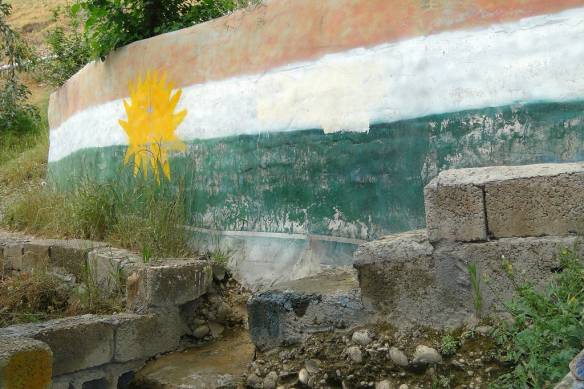Has the Iraqi Kurds’ sense of national identity been strengthened by the emergence of the so-called Islamic State? Not necessarily. If anything, mounting socio-economic and political tensions inside northern Iraq have been tearing at Kurdish nationalism for the last decade.

Still Life with Kurdistan Flag. Germiyan Province , courtesy of Global Photo Archive . CC BY Adam Jones via Flickr.
The so-called Islamic State (IS) continues to pose a serious threat to the Middle East and beyond. Its fighters currently have the upper hand in parts of northern Syria, and continue to threaten Baghdad’s control over southern Iraq as well as the Kurdish Regional Government (KRG) in the north. And while the United States, United Kingdom and others continue to provide air support and military training for the likes of the Kurdish Peshmerga, calls for Washington and its partners to do more are growing. Yet, an intensification of airstrikes and the possible deployment of boots on the ground risk obscuring the bigger picture, particularly when it comes to Iraq.
Since 2003, any semblance of an Iraqi national identity has gradually given way to a society now fractured along ethnic and sectarian lines. But while nationalism has often been associated with violence and militarization in modern history, it can also provide the ideological glue that brings seemingly disparate societies together. Consequently, the apparent lack of Iraqi nationalism is both a root cause of the ongoing turmoil inside the country and the main reason why the battle with IS will not be decided by money and weapons alone.
Read more at the ISN Digital library.
This text was first published in Norwegian in Dagens Næringsliv 11 August 2014: Nasjonalisme under press.
Translation from Norwegian: Fidotext.